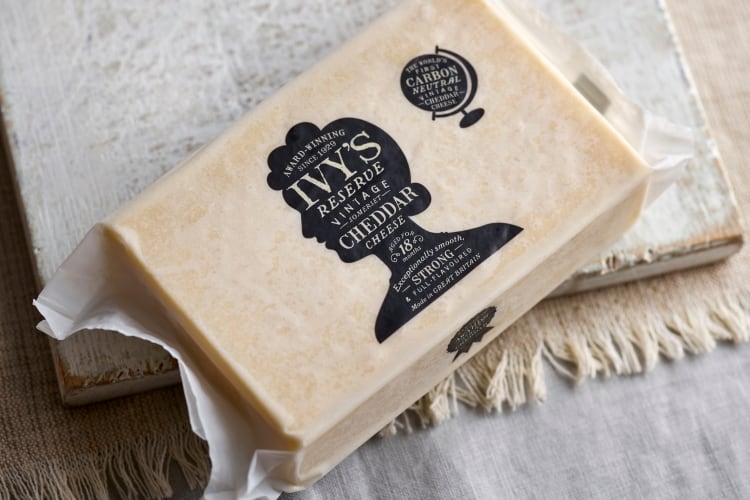In 2019, The Cheshire Cheese Company (CCC) appeared to be on an upward trajectory. Since the business was founded in 2010, it had grown by 30% annually, winning 15 cheese awards and expanding its customer base into continental Europe. Seeing the potential to grow exports further, the company’s managing director Simon Spurrell planned to invest £1m (around US$1.28m) in a warehouse to fulfil orders in Europe.
Meanwhile, the UK government and EU officials were trying to agree a withdrawal agreement - the terms under which the two sides would cooperate after the UK left the bloc - which would come into force in 2021. With Brexit on the horizon, the company also invested in a German and French-language versions of its web store in a bid to continue to attract EU custom. In addition, the company was preparing for trade post-Brexit, including consulting with the Department for Environment, Food and Rural Affairs (Defra) and the National Farmers’ Union.
'Unexpected' trade barrier
But on January 1, 2021, new export rules came into force, creating a trade barrier that had been ‘sudden, unexpected, unplanned and unforeseen by UK politicians’ according to Spurrell. The company had been hit with red tape in the form of a £180 health certificate required ‘for a slice or a ton of cheese’ sold to private customers. Whilst the cheesemaker had been prepared for this requirement for wholesale exports, it had been unclear that the rule would also apply to purchases from private customers.
Carrier rates had also increased, with Spurrell stating that pre-Brexit parcels to Europe cost around £12, but in early 2021, the rates of DPD and DHL had doubled.
This development left the company with an estimated revenue loss of £250,000 - and by mid-January 2021, CCC had shut down its online B2C service.
The business then pursued different avenues in a bid to restore trade with private EU customers via its online store – including investing in a physical EU hub or through groupage export. “Small businesses cannot afford the risk or the outlay of trying to setup an EU hub,” Spurrell told us. “The only way cheese export to the EU can be commercially viable is in higher volumes than we could effectively sell to our distributors. The same cost and time in paperwork and checks remains for a single pallet or 50 pallets of cheese.
“We have managed to export a few orders in 2022 by consolidating our shipment with other smaller producers. Unfortunately, this groupage service was provided to us by a company, which has since gone out of business.”
“The problem with groupage is that if one of the suppliers has made the tiniest mistake with their paperwork the entire consignment is rejected.” - Simon Spurrell, The Cheshire Cheese Company
“So a container with 50 pallets could be rejected because of one. The red tape bureaucracy that the Brexit deal has created remains a large problem because each country interprets the deal and regulations differently - with the same product for France being treated differently in Italy,” Spurrell concluded.
Next year, the company will finally be able to sell to EU customers through its website again. This, however, has come at a price.
A future under Joseph Heler
The Cheshire Cheese Company has been bought by Joseph Heler, a fellow Nantwich-based cheesemaker that has a wholesale hub in the Netherlands. CCC will now form part of Heler’s flagship cheese brands, though the CCC leadership team will remain at the helm of the acquired business.
"Joseph Heler predominantly supply to Germany and several other central European countries,” Spurrell explained. “The addition of The Cheshire Cheese Company will mean that most of the other countries will be accessible from next year for our e-commerce website sales customers, as we will fulfil from the hub locally at a reduced cost of shipping.”
Domestically, all CCC head offices, production and warehouse staff will be retained while 14 new jobs will be created on the back of the acquisition. Spurrell is set to stay as MD, retaining autonomy and focusing on driving new creative ideas into the company’s B2C offering. Over the years, CCC has specialized in cheese waxed truckles, producing more than 15 variants including cheddar, Cheshire, Royal Blue. The brand has picked up multiple awards, including an International Gold Award for its Irish Whiskey and Stem Ginger cheddars.
Commenting on the deal, George Heler, group MD of Joseph Heler, said: “We’re delighted to welcome the Cheshire Cheese Company to the Heler Group. It has a fantastic product and has worked hard to grow a loyal following across the UK. Cheshire Cheese Company’s wealth of experience and expertise will provide plentiful synergies which is very exciting. Together, we’re confident we can extend its reach across the UK and Europe.”
Spurrell meanwhile believes his company, which had recorded a 400% revenue growth since 2019, remains on firm footing. "This arrangement will see us able to grow with increased production and fulfilment capacity and a worldwide reach," he concluded.



